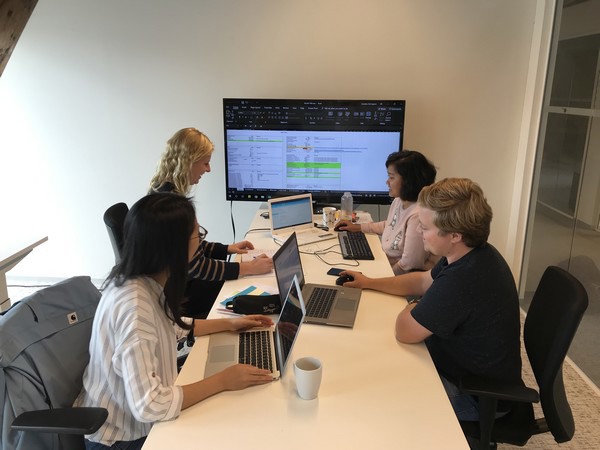Well Engineering Partners (WEP) are participating in the Joint Interdisciplinary Project (JIP) from the TU Delft since September 2019. JIP is a new initiative started in 2018 at the TU Delft where teams with students from different backgrounds, both knowledge-wise and culture-wise, are formed to work on a 10-week project on behalf of different companies. WEP is one of those companies that now have a full-time student team working on their behalf.
The team consists of four students from different backgrounds. First, there is Sofie from the Geo-Engineering master at the TU Delft, where she finished her bachelor in Civil Engineering. Second, we have Ai-Yu from the Material Science master at the TU Delft and she did her bachelor in the same field in Taiwan. The third member on the team is Jaïr, he did his bachelor at the faculty of Technology Policy and Management at the TU Delft and now follows the master Complex System Engineering and Management at the same faculty. The last team member is Mustika, she did her bachelor Engineering Physics in Indonesia and is now following the same master program as Jaïr.

These four students together form the JIP team of WEP. In these ten weeks, they are working together with WEP on optimizing heat production from geothermal wells. This is a very general statement, so for their problem definition, they narrowed the topic down a bit. They decided to focus on a model that can show them the influence of different material variations and decisions, using a Life Cycle Analysis (LCA) of a geothermal well. This LCA will give a forecast on the possible return on investment and carbon emission from a geothermal well in the Netherlands for its total lifetime. Due to uncertainty, this model will incorporate different predictions for future scenarios related to electricity price, gas price, subsidy et cetera. Furthermore, they also look at the influence of corrosion on the well lifetime and needed maintenance period.
They want to deliver a functioning LCA model by the end of October 2019. This model should show the impact of different decisions on the financial aspects and carbon emissions during the whole lifetime of a geothermal well in the Netherlands.
For more information: Well Engineering Partners
Well Engineering Partners
Toldijk 17-19
7901 TA Hoogeveen
The Netherlands
T: +31528227710
F: +31528227715
[email protected]
wellengineering.nl
